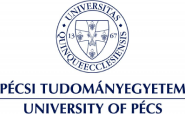CASE – Center for Social and Economic Research is an independent, non-profit research institute founded on the idea that research-based policy-making is vital for the economic welfare of societies. Established in Warsaw in 1991, CASE today is recognized as the top think tank in Central and Eastern Europe and is one of the most highly regarded think tanks internationally. CASE carries out policy-oriented research and development assistance projects, specializing in the areas of: 1) Fiscal, monetary and financial policies 2) Sustainable development policies 3) Trade, innovation and productivity policies. Drawing on an experienced in-house staff, a network of fellows, and a database of approximately 1,000 experts, CASE provides rigorous quantitative and qualitative analyses, innovative methodologies, and sound recommendations.
CASE has extensive experience in working with the international donor community: numerous assignments for the European Parliament, various Directorates-General of the European Commission, the Open Society Institute, Eurofound, UNDP, USAID and the World Bank. CASE relies on its pool of internationally-recognised economic experts and Warsaw-based staff to carry activities including conducting independent, high-quality research and analysis; advising governments, international organisations and the NGO sector; informing and encouraging public debate; disseminating economic knowledge and research results.
case-research.euAmbrela – Platform for Development Organisations is an umbrella organisation of 29 mostly non-governmental organisations in Slovakia (16 full members, 13 observers) which focus on development cooperation, humanitarian aid, global development education and sustainable development at home and abroad. The platform represents the common interests of its members both domestically and internationally.
The goal of Ambrela – Platform for Development Organisations is:
- to be one of the main actors, as well as a direct participant, in the field of development cooperation and foreign policy in the Slovak Republic, the European Union and other institutions which focus on sustainable development in less developed countries and/or in Slovakia,
- to guide the awareness of Slovak people towards solidarity and mutual assistance and, in so doing, contribute to solving the problem of poverty, and humanitarian crisis in the world,
- to provide its members with opportunities for development and professional growth.
The University of Pécs (UPECS) with its 20,000 students, more than 4,000 international students, 2,000 lecturers and researchers, 22 doctoral schools and 10 faculties is one of the largest higher education institutions in Hungary and the centre of knowledge in the South Transdanubian region. Its roots date back to 1367. In terms of its legal status, it is a central budgetary institution.
The mission of UPECS is the development of innovation-oriented and knowledge-based economy: to build a bridge between the economy and science by supporting industry with its research capacity, support the technology transfer of the research results to create marketable solutions and exchange international experiences with research and educational institutions to create synergies.
The university knowledge base can be interpreted along three dimensions:
- research results, which are produced in the university environment & labs;
- teaching, where a highly qualified labour force is trained to support the knowledge industry;
- business & technology transfer services to support the market introduction of innovations.
international.pte.huIIR – Institute of International Relations Prague is an independent public research institution that conducts excellent academic research in the larger field of international relations. It is established by the Ministry of Foreign Affairs of the Czech Republic.
The IIR's mission is to conduct internationally recognized, excellent research in the field of international studies, contribute to the formation and conduct of the foreign policy of the Czech Republic, and increase awareness of issues of international relations among both professionals and the general public. Thus, the IIR forms a unique link between the academic world, the public, and international diplomatic practice. By doing so, it contributes to the formulation and implementation of a Czech foreign policy that is based on the values of democracy, rule of law, human dignity, and promoting social equality; and mainstreams independent and carefully tended expertise about international politics in the public debate.
While pursuing its goals, the IIR cooperates with many leading foreign and domestic academic institutions and think tanks. It is a member of the European Consortium for Political Research (ECPR), the Trans European Policy Studies Association (TEPSA), the EU Nonproliferation and Disarmament Consortium (EUNPD), and the Think Visegrad platform, and it is also the National Coordinator for the Anna Lindh Foundation.
iir.czExperts:
Oskar Chmiel (CASE) holds a PhD in Social Sciences with a specialisation in Political Science from the University of Wroclaw. His research focuses on the political and social aspects of international development cooperation, migration and trade. He is also particularly interested in relations between the European Union and African countries. Prior to joining CASE, he gained experience working, among others, as an intern at the Polish Centre for African Studies, an intern at the Istanbul Gelisim University, a PhD Candidate and lecturer at the University of Wroclaw, a Visiting PhD student at the University of Granada, a Visiting Researcher at the German Development Institute (currently, German Institute of Development and Sustainability – IDOS), and a Visiting Fellow at the European University Institute and the Historical Archives of the European Union in terms of Vibeke Sørensen Grant. At CASE he is currently working as a Specialist in Social Sciences on policy-oriented research and development assistance projects on international cooperation, migration, and labour markets. His mother tongue is Polish, and he speaks fluently English and French.
Agnieszka Kulesa (CASE) has been working as an Economist at CASE since 2018. She specializes in the labour market, international labour migration, and migration policies within and outside the European Union. During her career she has gained extensive experience working in the private and public sectors. She worked at the Institute of Public Affairs in Warsaw (2017-2018), incl. as the Head of the Migration Policy Programme, and for the Migration Policy Department of the Ministry of the Interior of Poland (2010-2014), where she was responsible for international cooperation in the field of migration and coordinated activities within the framework of the Prague Process. Ms. Kulesa also worked at the Polish Institute of International Affairs (PISM). In 2021, she completed her doctoral studies at the Warsaw School of Economics. She has led or participated in several research projects on migration and labour markets and authored a number of scientific articles. Ms. Kulesa has been a panellist at events organised by Polish and foreign public and private institutions and regularly provides commentaries for the media (i.a. “Rzeczpospolita”, “Newsweek”, “Financial Times”, BBC). Her mother tongue is Polish and she speaks fluently English and French.
Daniel Šitera (IIR) is a researcher and a head of the Center for Global Political Economy. He studied global studies at Leipzig University (Dr. phil) and political science at Charles University (Ph.D.). He is interested in the comparative and international political economy, Central and Eastern Europe, and the economic dimension of European integration. Daniel served previously as a policy officer at the Czech Ministry of Industry and Trade and national expert in the Council of the EU. He also co-organizes the IIR Critical Studies Seminar and the annual symposium Multilateral Czechia.
Ondřej Horký-Hlucháň (IIR) is a a Senior Researcher at the Centre for Global Political Economy of the Institute of International Relations Prague. He has a PhD. in International Economic Relations and a Master’s in International Trade and European Integration from the University of Economics in Prague. At the IIR he worked as Deputy Director for Research among other. His professional interests include global and sustainable development, poverty, development cooperation and humanitarian aid, globalization and global North-South relations, gender in development, international relations and foreign policy, and Africa. He also teaches at the University of West Bohemia in Pilsen. He is a member of the Executive Committee of the European Association of Development Research and Training Institutes (EADI) and the Management Committee of COST Action DecolDEV. He is an IIR Board member.
Petr Burda (IIR) is a Head of Project Management Unit at the Institute of International Relations Prague. He has been working more than 10 years as a project specialist and project manager (EU and domestic funds). As a senior project specialist for IIR he is responsible for management and coordination of the projects focused on research and development. These projects include research grants financed by the European Commission such as Horizon 2020, Horizon Europe, Marie Curie (MSCA), COST but also in smaller-scale grants such as those financed by Norwegian funds, Visegrad Funds, Stiftung grants and many others.
Daniel Kaba (Ambrela) studied international public law at the University of Vienna, spe cializing in human rights and law at the University of Comenius in Bratislava. In the past eight years he has been active in development cooperation and humanitarian aid, working as a project manager, trainer, director of ADRA Slovakia and led a team implementing projects in Kenya, Georgia, Ukraine, Moldova, Lebanon among others. Currently he works as an executive secretary for the Ambrela Platform for Development Organizations. His main focus is advocacy and partnerships. He has also provided inputs for strategic documents such as the Act on Official Development Cooperation and Medium Term Strategy for Development Cooperation 2019–2023. In the past he served on the board of Ambrela.
Istvan Tarrosy (University of Pecs) is a full university professor with habilitation at the Department of Political Science and International Studies at the University of Pecs in Hungary. He is also director of the country’s only Africa Research Centre in Pecs. His Political Science PhD research was focused on the development of the Tanzanian state in a regional context, also in light of Afro-Asian dynamics. Additionally, he also holds master’s degrees in English linguistics and teaching English as a foreign language, as well as Physics from Janus Pannonius University and the University of Pecs, with an exchange year at the University of Leicester, UK. He is Editor-in-Chief of the Hungarian Journal of African Studies (Afrika Tanulmányok). He has a wide network of teaching and research projects and commitments in the U.S., the PR China, Japan, the UK, Poland and across Europe, as well as Ethiopia, Tanzania, Kenya, Rwanda, South Africa, Botswana.




